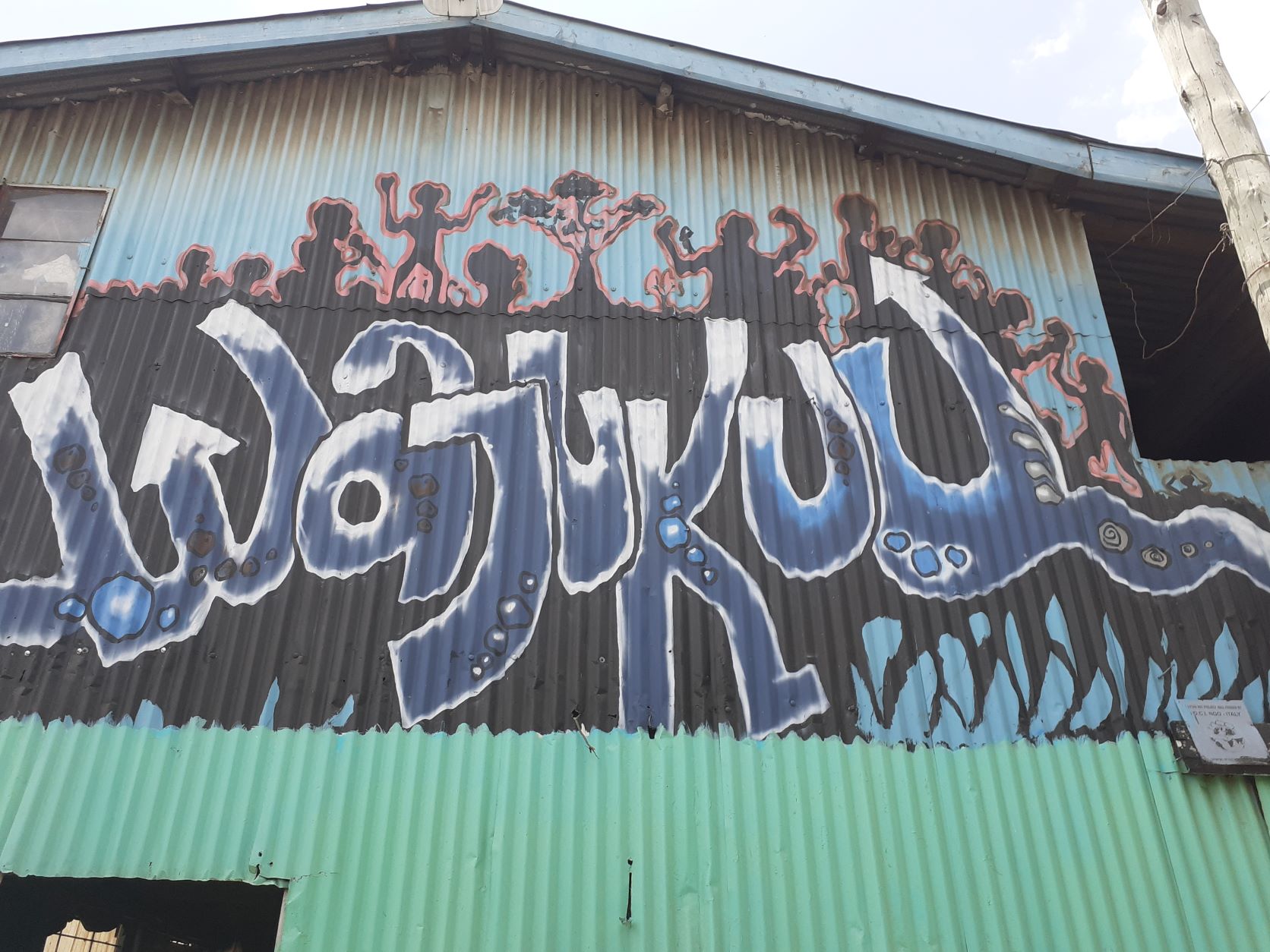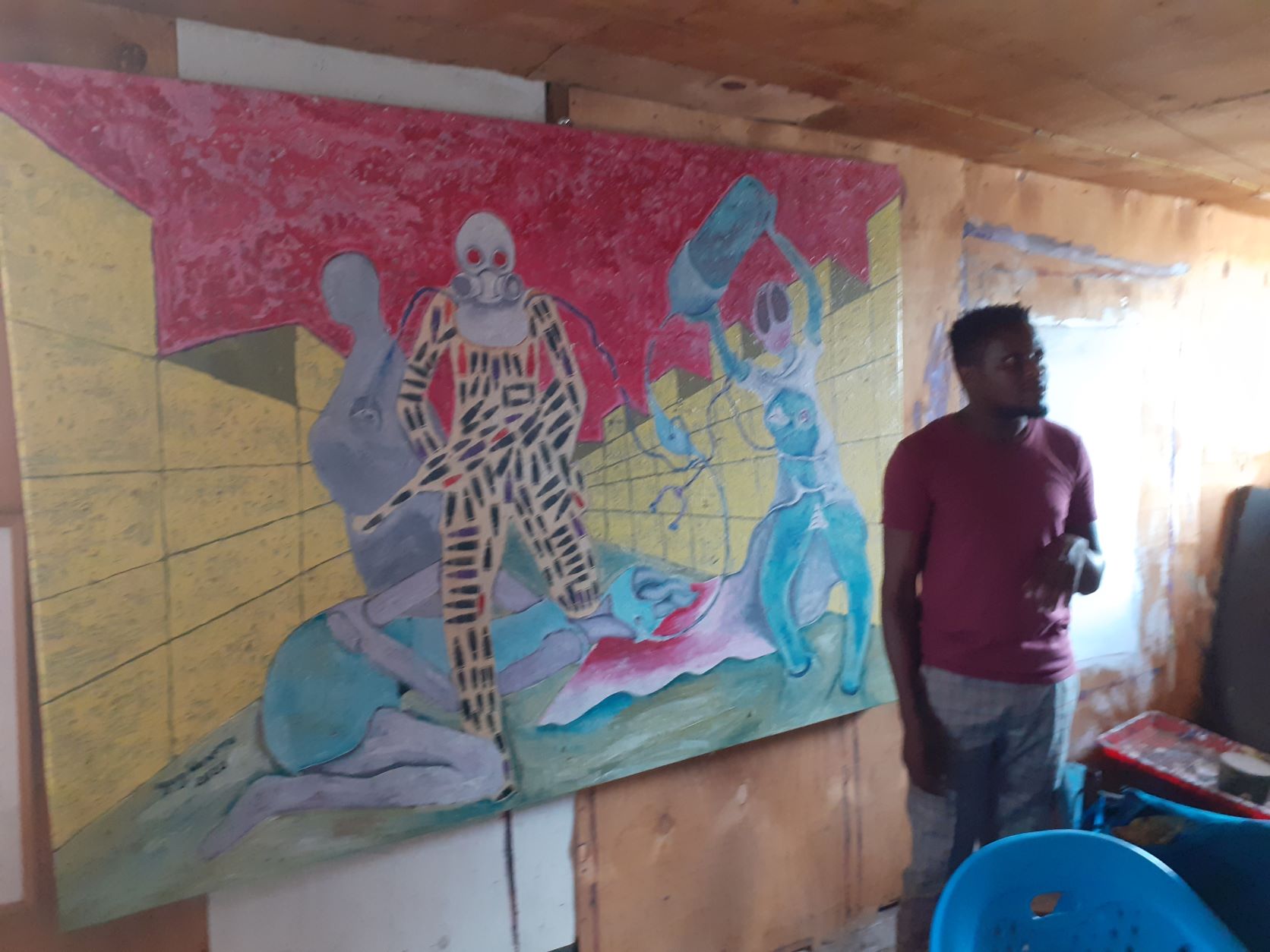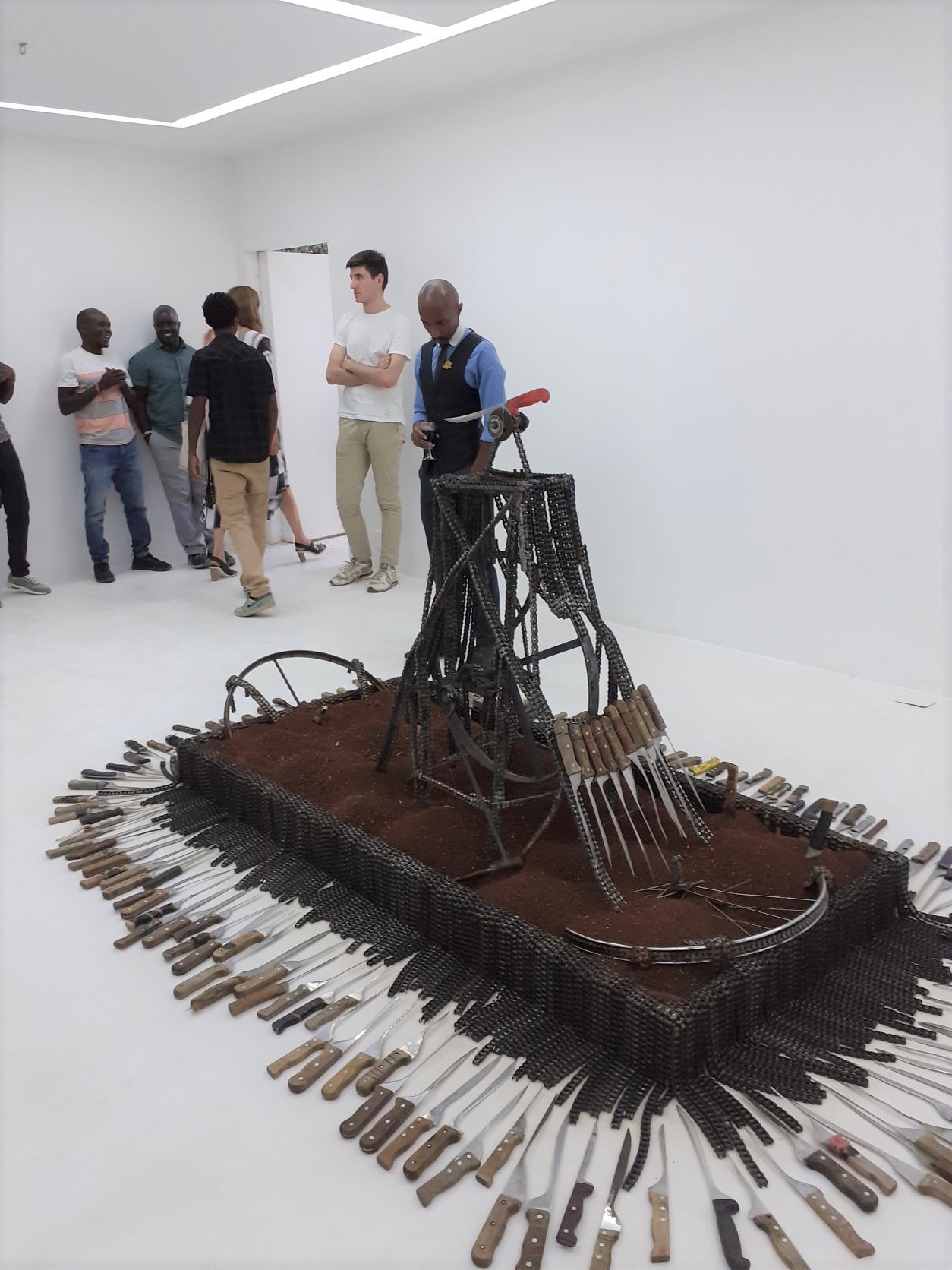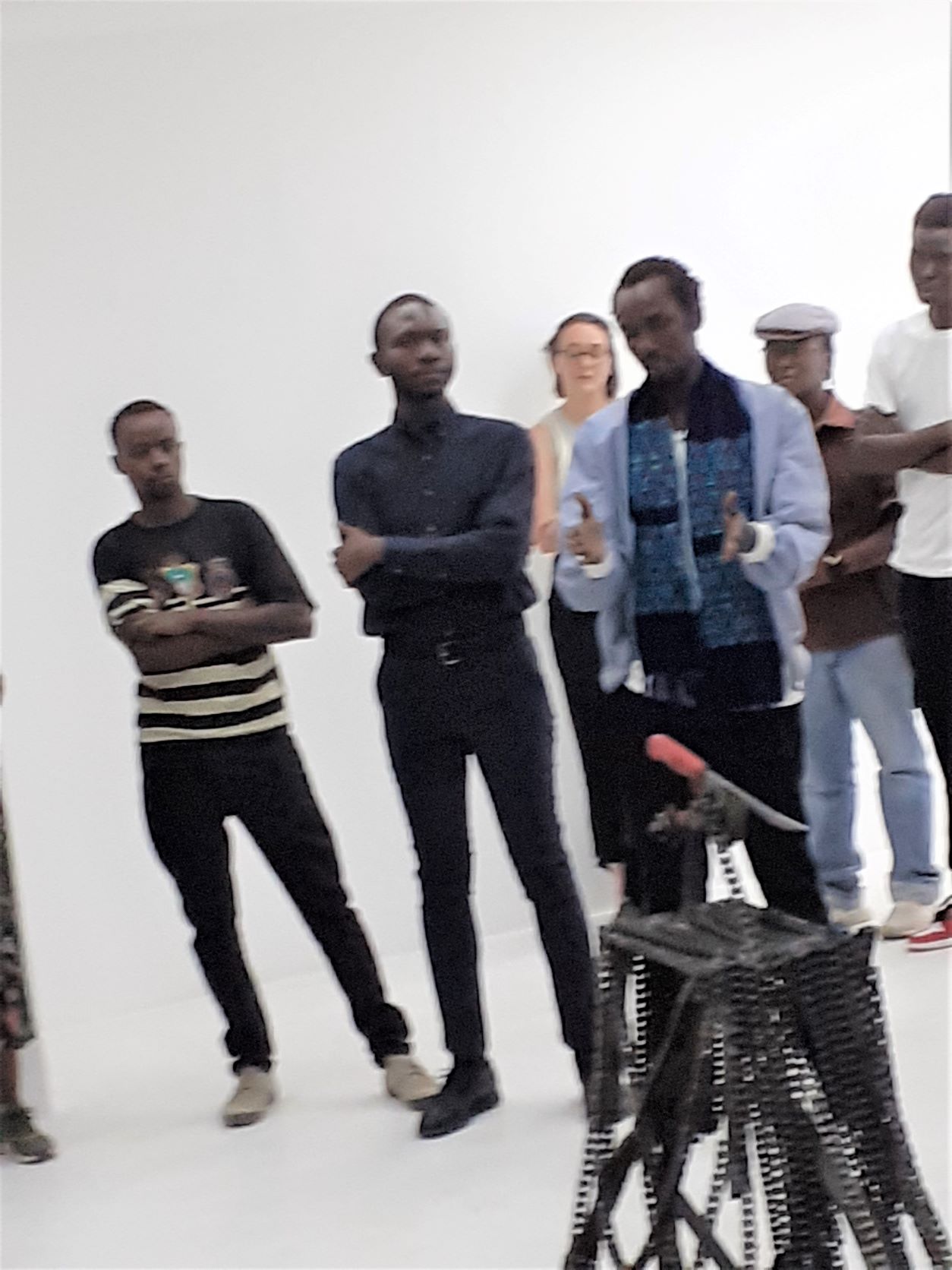Project participants from the National Museum in Szczecin conducted research in two countries on their Spring 2022 secondment, learning about collective initiatives among community-based artists, craftsmen and educators in Kenya (Ewa Prądzyńska, Katarzyna Podyma, Marlena Chybowska-Butler) and Tanzania (MCB) as part of ongoing efforts to engage cultural actors and assess their impact, as well as that of European culture, on artmaking in East Africa.
PART 1/4
In Nairobi, members of the NMS team joined those from project partner Universita di Macerata in attending an artist talk organized by the Nairobi Contemporary Art Institute, which is staging a retrospective exhibition of noted Kenyan painter Sane Wadu at its facilities in the Rosslyn Riviera Mall. Joining the Naivasha-based artist at the event were contemporaries Yony Waite, a painter from Lamu, and Nairobi-based sculptor Gakunju Kaigwa.
Wadu fielded questions from the pair and members of an audience of about 50 in an hour-long discussion about his work and career. He began painting boards and on articles of clothing in the 1980s in nearby Kiambu and was helped in his development by Gallery Watatu, which Waite co-founded in 1968, and became instrumental for showcasing of Kenyan art and supporting the artists who made it. Today, Waite operates a printmaking facility, Studio Wildebeest, on the island off the country’s northern Indian Ocean coast.
Waite’s work came to the NMS team’s attention via Nairobi’s Circle Art Gallery, which offered an exhibition of three female artists from the region with considerable pedigree. Along with Waite, the commercial facility presented the works of Uganda’s Theresa Musoke and Kenya’s Tabitha Wa Thuku; all of whom have been active in the region’s art scene for many years. Educated in America, Musoke has enjoyed exhibitions in Europe and elsewhere over a long career. Meanwhile, Wa Thuku was lauded as ‘a Picasso of Kenyan art’ by the late Ruth Schaffner, the American philanthropist who purchased Gallery Watatu from Waite and her founding partners in the 1980s.
While at Circle, researchers were tipped to an upcoming show by members of the Wajukuu Art Project, a collective invited to participate in the prestigious Documenta Fifteen, which begins in June 2022 in Kassel, Germany. Entitled ‘Systems to Emptiness’, the exhibition showcased sculptural works created by Wakujuu founders: Shabu Mwangi and Ngugui Waweru, whose collective is based in Nairobi’s Mukuru slum. The works and a sound installation at the gallery entrance used found objects and natural materials to express the confinement of the environment in which they were made, a 243-hectare patch of makeshift huts and hovels fashioned from shipping containers, scrap metal, chicken wire and wood that is home to almost a half-million people.
At the event, NMS researchers renewed their acquaintance with local luminaries Dennis Muraguri, a maker of woodblock prints of the country’s ubiquitous matatu buses who works from a space at the Kuona Art Trust in the capital. We also occasioned to discuss with contemporary mask maker Cyrus Kaburi his experience at the Art Dubai fair, where organizers commissioned a workshop for a UAE children’s programme.
The day after the Circle opening, billed as preview of works to be shown at the global Contemporary Art gathering this summer and featured wine, canapes and television coverage, NMS researcher (MCB) journeyed to Mukuru to learn more about the collective and its activities. There, Waweru and fellow member-artist Fletcher (Freshia) Njeri guided us on a tour of the 15-year-old Project’s facilities, including existing and newly built exhibition, events and studio spaces, and the garden they’d planted and landscaped on the garbage-strewn banks of the river that runs through the slum as part of the Kids Club outreach programme through which the artists serve the Mukuru community.
The pair recounted their upbringing in the slum, where they continue to make their homes, and said Wajukuu was born from a desire to bring hope to the people who live there. Among the many activities they organize are documentary film screenings, music lessons and dance performances. Much of this work is self-funded, even as interest from Germany has yielded donations and sponsorships, including from the Nairobi branch of the Goethe-Institut cultural institution. As part of their Documenta participation, the artists hope to secure funding from organizers to purchase a plot in the capital’s suburbs on which they can grow food and pass those and other skills on to children from Mukuru.

